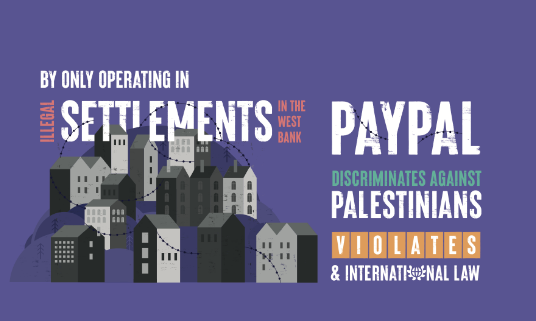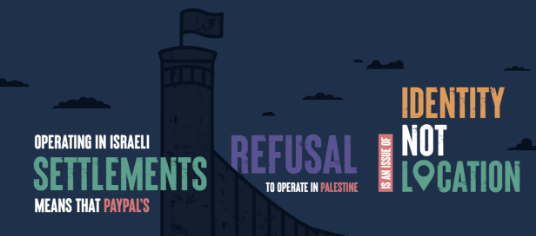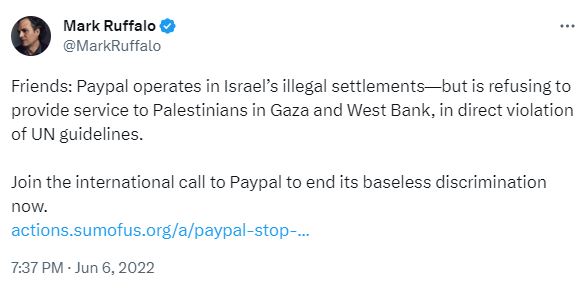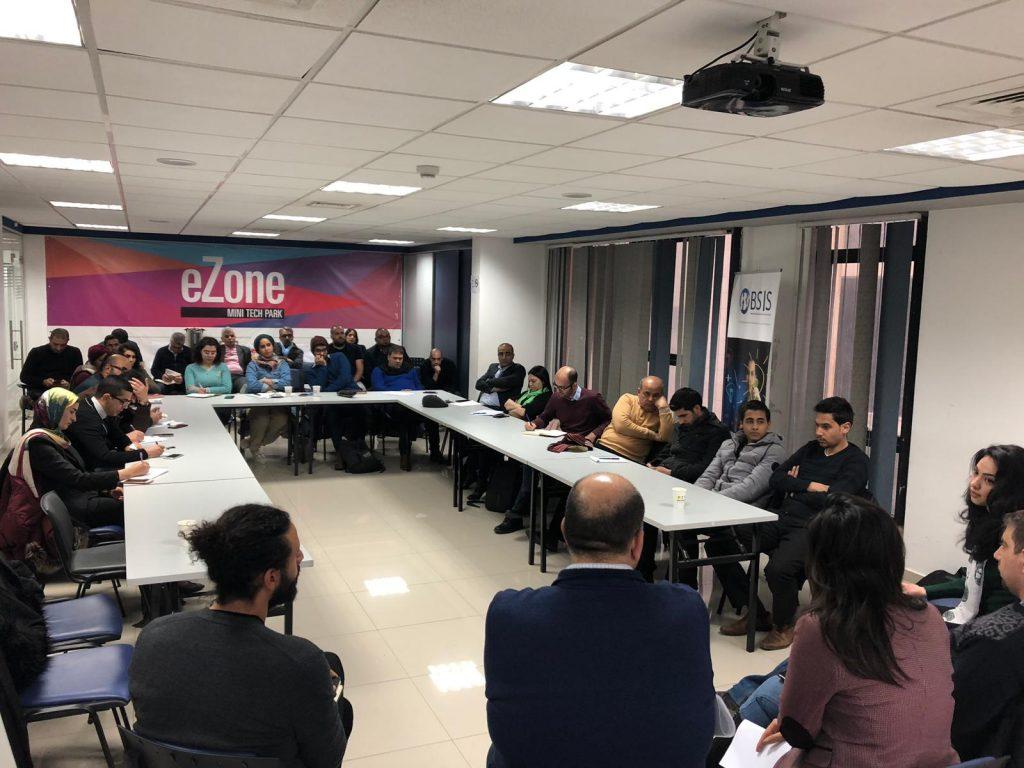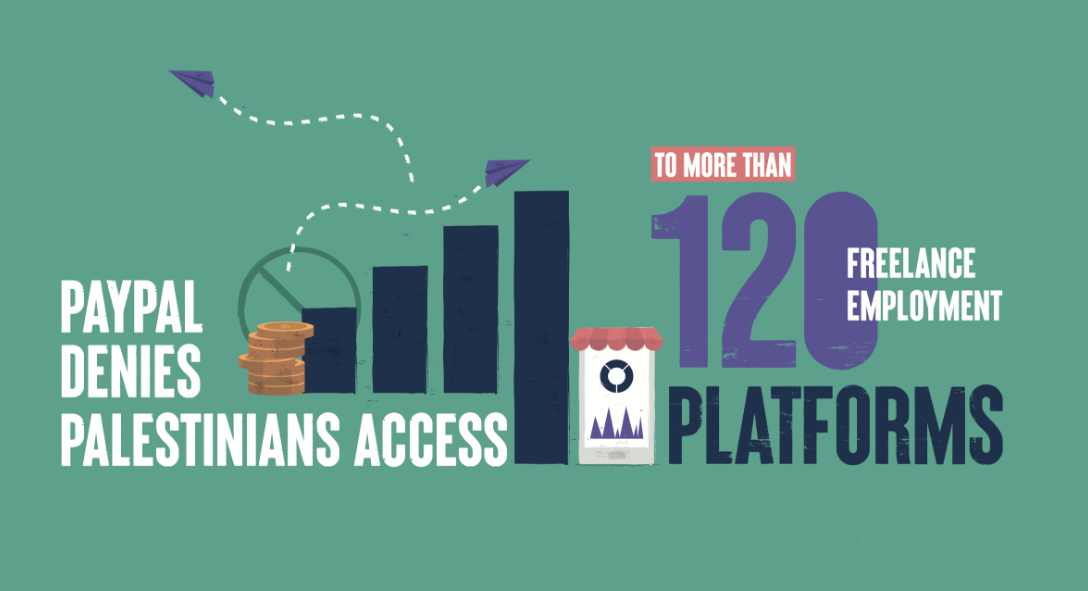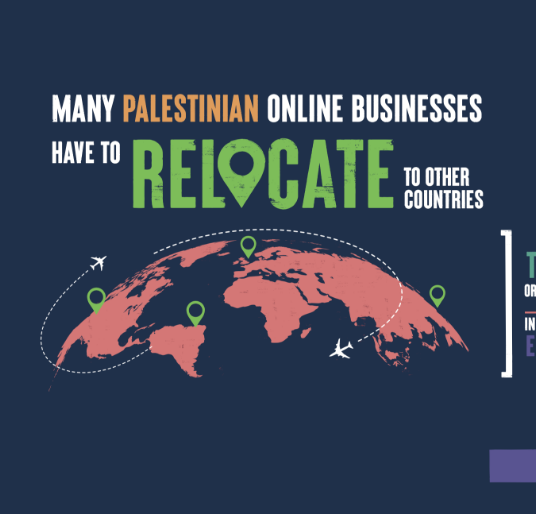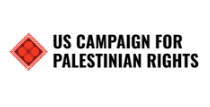Overview
During the 2021 Israeli aggression on the Gaza Strip, we saw reports that people were unable to donate to impacted families under attack using Venmo. Human rights organizations in Palestine reported that they were unable to access funds they raised on PayPal to support impacted communities. This all came as a result of ongoing exclusion of Palestinians from digital payment platforms.
Since 2016, 7amleh — The Arab Center for the Advancement of Social Media and a number of civil society organizations have been advocating for PayPal to offer its services in Palestine. PayPal, a global digital payment company, operates in over 200 countries and territories, including countries which struggle with major political and economic instability such as Yemen, and Somalia. PayPal offers its services in Israel, including in Israeli settlements in the occupied West Bank, but the company does not grant Palestinians with bank accounts in the West Bank and Gaza access to its platform.
PayPal does however provide full access to the estimated 9.2 million Israeli citizens, which includes Palestinian citizens of Israel, as well as Israeli settlers residing in Israeli settlements in the West Bank, which are unlawful under international law. PayPal services are also available to the nearly 340,000 Palestinian residents of occupied East Jerusalem, but only if they open an account with an Israeli bank.
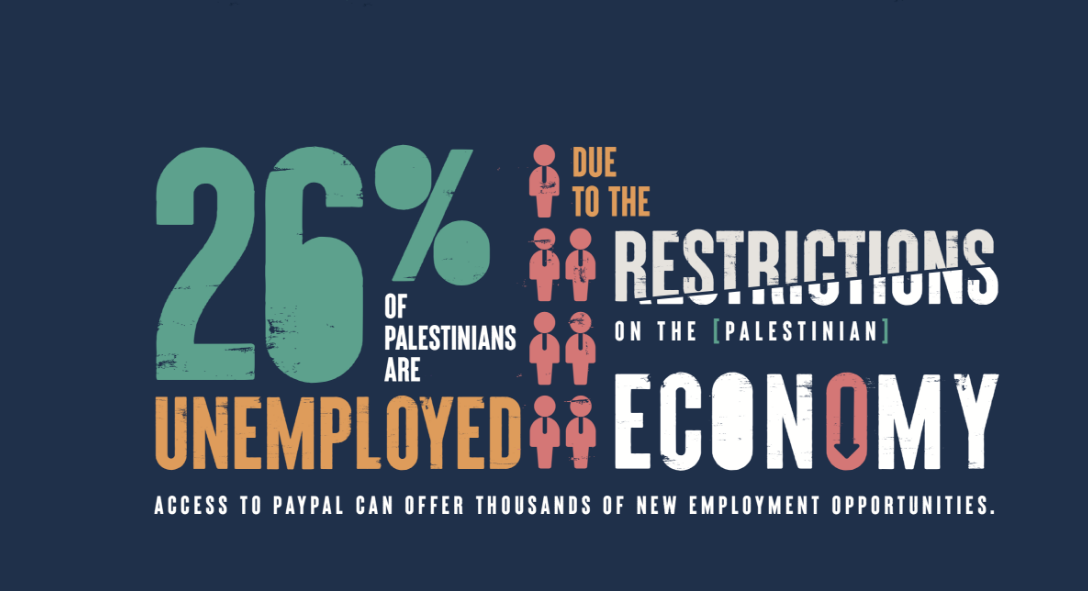
PayPal’s Policy of Discrimination
In Palestine, PayPal’s services are provided under conditions of discrimination, as the company excludes over five million Palestinians in the rest of the West Bank and Gaza Strip from its full services. Whereas PayPal’s services are available to Israeli settlers residing in settlements in the occupied West Bank, which are built unlawfully on Palestinian land for the sole benefit of Israeli settlers and entrench discriminatory Israeli practices against Palestinians, their Palestinian counterparts living in the same territory are denied access to the platform. PayPal’s operations in illegal settlements in the occupied Palestinian territory (oPt) goes against their responsibility not to contribute to human rights violations, as outlined and provided by the United Nation Guiding Principles on Business and Human Rights (UNGPs). Israeli settlements are part of Israel’s discriminatory regime that privileges Israeli settlers over Palestinians residing in the oPt. Businesses operating in Israeli settlements sustain the existence of such settlements, support their expansion, and benefit from Israel’s discriminatory practices against Palestinians in the oPt. Many human rights organizations have documented how businesses in Israeli settlements contribute to serious violations of international humanitarian and human rights law.
As such, PayPal’s policy to deny Palestinians equal and fair access to its services in the West Bank and Gaza appears to be based on discriminatory grounds of national or ethnic origin rather than location. Differential treatment, on the basis of race, ethnicity, and national origin, violates the fundamental prohibition against discrimination under international human rights law. PayPal has a responsibility to respect human rights, in accordance with the United Nations Guiding Principles on Business and Human Rights (UNGPs), and must ensure its services and operations are provided in a non-discriminatory manner on the basis of race, ethnicity, or national origin.
PayPal’s decision is also biased as it unequally provides Israeli freelancers, startups, entrepreneurs and businesses with far more opportunities than their Palestinian counterparts, who face high unemployment rates (24% in 2022, including 13% in the West Bank and 45% in Gaza) and a codependent and weak economy. This is due, in large part, to Israel’s discriminatory restrictions imposed on imports, exports, access to resources and movement in the West Bank, and to an even larger extent in the Gaza Strip. By excluding Palestinians in the West Bank and Gaza Strip from its services and making them available to Israeli settlers, PayPal indirectly contributes to the inherently discriminatory Israeli occupation, and further exacerbates its devastating impacts on the Palestinian population and its economy. As if this were not enough, PayPal has also interfered in Palestine solidarity initiatives launched from different parts of the world. In the particular case of Europe, PayPal has closed the accounts of several organizations whose activity focuses on the struggle for Palestinian human rights. The firm has also obstructed the operation of other similar organizations' accounts on its platform. This obstruction has added considerable impact on the economic development of Palestinians in the oPT, but it also contributes substantially to eroding the already precarious spaces for international debate around the situation in Palestine, in line with the dynamic of pervasive silencing and delegitimizing Palestinian and pro-Palestinian activists and organizations.
Economic deplatforming not only impacts access to financial and professional opportunities, but also various aspects of the socio-political context, particularly in conflict-affected environments where the economic climate is unforgiving. Economic deplatforming is a phenomenon that exacerbates existing inequalities within a society. It also means that quality employment will not be available to all Palestinians. The younger generations, especially women, will be the most affected: as in other regions of the world, young people who do not see their professional ambitions fulfilled and who are unable to be part of a professional context that matches their academic qualifications (we should not forget that in 2022 the unemployment rate for young graduates in the West Bank was 36%, compared to 74% in Gaza), will experience increasing dissatisfaction with their institutions and their political representatives, and thus exacerbate already existing political instability. The longer they wait, the more significant the impact this situation will have on their long-term prospects for financial stability and self-sufficiency.
As the world’s most recognized online payment platform, access to PayPal can generate more income, employment opportunities, and improve the livelihoods and future growth of thousands of Palestinians. This is particularly impactful for freelancers, entrepreneurs, business owners and organizations. However, the discriminatory exclusion and inability of Palestinians to access PayPal’s platform has further contributed to preventing the overwhelmingly young Palestinian population from seeking employment as freelancers or entrepreneurs. This limits the growth of the struggling Palestinian economy by excluding Palestinians from the global market.
